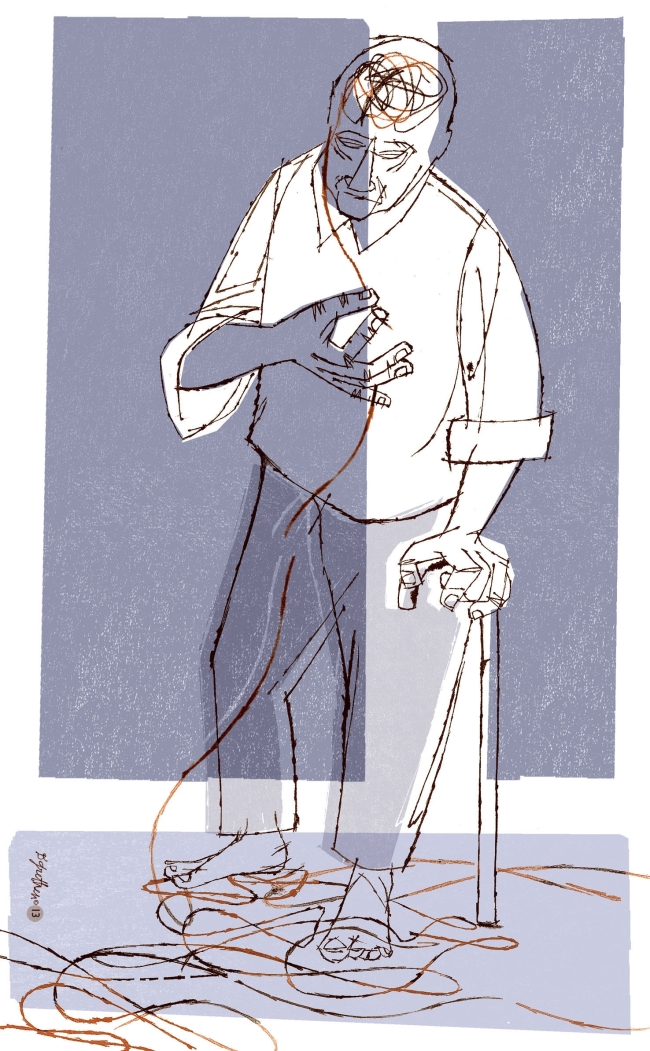WASHINGTON (AP) ― Ninety birthdays maybe, but not 120: Americans hope to stretch out life expectancy another decade or so, but they’re ambivalent, even skeptical, about a fountain of youth.
A new poll by the Pew Research Center explores attitudes about a scientific quest: Creating treatments that one day might slow the aging process and let people live decades longer than is normal today.
Scientists already can extend the life span of certain laboratory animals ― mice, worms, flies ― with various techniques. They’ve also tried with monkeys, although the evidence in that species is mixed.
There’s no way to know if there ever will be some type of Methuselah pill for humans.
But with the field growing, Pew took the public’s pulse and found most Americans wouldn’t want a treatment that would let them live to 120. Fifty-six percent said no thanks ― although two-thirds expect most other people would want to try such a step, said the report.
A new poll by the Pew Research Center explores attitudes about a scientific quest: Creating treatments that one day might slow the aging process and let people live decades longer than is normal today.
Scientists already can extend the life span of certain laboratory animals ― mice, worms, flies ― with various techniques. They’ve also tried with monkeys, although the evidence in that species is mixed.
There’s no way to know if there ever will be some type of Methuselah pill for humans.
But with the field growing, Pew took the public’s pulse and found most Americans wouldn’t want a treatment that would let them live to 120. Fifty-six percent said no thanks ― although two-thirds expect most other people would want to try such a step, said the report.

Few expect such a radical idea to become reality, at least by 2050, although most of those surveyed expect other medical advances that could more gradually extend life expectancy, such as better cancer care.
When asked about living to 120 or beyond, the survey found 51 percent of people said that would be bad for society. They worried about a strain on natural resources, and that such treatments probably would be available only to the rich rather than to everyone.
What is the ideal life span? To most Americans, it’s between 79 and 100; the median answer was 90 years, Pew reported.
In the U.S., a child born today can expect to live 78.7 years. Women’s life expectancy is longer, 81 years, than men’s, 76.2.
With a rapidly graying population that is bringing concern about the growth of Alzheimer’s disease and an overburdened Medicare system, caution about the idea of one day living even longer may not be surprising.
But longevity pioneer Cynthia Kenyon of the University of California, San Francisco, wonders if the public understands the real goal of such research, which is better health.
Many of the experimental animals whose lives have been extended look and act far younger ― and are far healthier ― than their untreated counterparts of the same age, she said.
“It would be the equivalent of a 90-year-old person that you think is looking like a 45-year-old,” Kenyon told the Associated Press.
Because aging itself underlies the development of many chronic diseases as our bodies break down, the theory is that slowing the aging process might help keep people healthier for longer ― even if it’s never as dramatic as what has happened with animals.
“We are very interested in not only life extension, but extension of the health span,” said Dr. Marie A. Bernard, deputy director of the National Institute on Aging, which pays for much of this research.
-
Articles by Korea Herald








![[Graphic News] More Koreans say they plan long-distance trips this year](http://res.heraldm.com/phpwas/restmb_idxmake.php?idx=644&simg=/content/image/2024/04/17/20240417050828_0.gif&u=)
![[KH Explains] Hyundai's full hybrid edge to pay off amid slow transition to pure EVs](http://res.heraldm.com/phpwas/restmb_idxmake.php?idx=644&simg=/content/image/2024/04/18/20240418050645_0.jpg&u=20240419100350)






![[From the Scene] Monks, Buddhists hail return of remains of Buddhas](http://res.heraldm.com/phpwas/restmb_idxmake.php?idx=652&simg=/content/image/2024/04/19/20240419050617_0.jpg&u=20240419175937)

![[KH Explains] Hyundai's full hybrid edge to pay off amid slow transition to pure EVs](http://res.heraldm.com/phpwas/restmb_idxmake.php?idx=652&simg=/content/image/2024/04/18/20240418050645_0.jpg&u=20240419100350)

![[Today’s K-pop] Illit drops debut single remix](http://res.heraldm.com/phpwas/restmb_idxmake.php?idx=642&simg=/content/image/2024/04/19/20240419050612_0.jpg&u=)